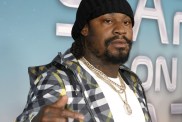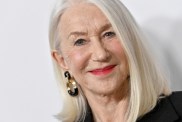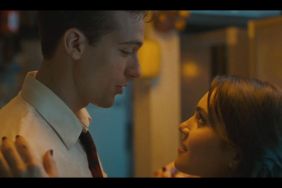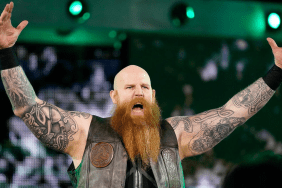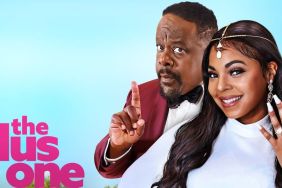A SXSW review

>Cast:
Sara Paxton as Claire
Pat Healy as Luke
Kelly McGillis as Leanne Rease-Jones
George Riddle as the Old Man
Directed by Ti West
Review:
After three movies in which he progressively developed his distinctive storytelling style, The Innkeepers is proof that no one today does horror like Ti West. Despite the fact that he’s basically re-contextualizing the same sorts of visual and narrative conventions that sustained the genre since its inception, he always manages to make them interesting, or at least effective. The terrific thing about his latest, however, is that it seems perfectly timed to penetrate the mainstream, introducing to some a dynamic and important voice in modern horror movie-making while demonstrating how he’s not merely repeating himself but truly refining his considerable talent.
Sara Paxton (The Last House on the Left) plays Claire, an aimless twenty-something who joins her co-worker Luke (Pat Healy) for the last three days of their tenure at The Yankee Pedlar, a New England hotel which is going out of business after more than a hundred years in operation. Deciding to sleep in its vacant rooms, the duo tend to a handful of guests, including an actress turned spiritual guru named Leanne Rease-Jones (Kelly McGillis) and an old man (George Riddle) eager to revisit the site of his honeymoon; simultaneously, they hatch a plan to capture proof that the building is host to lingering spirits. Thanks to a wealth of tragic lore in the hotel’s history, they seem poised to make at least a minor discovery; but when Rease-Jones receives a premonition that something may be interested in contacting them back, Claire and Pat find themselves thrown into something a lot scarier and more dangerous than they bargained for.
As a huge fan of House of the Devil and horror films like those in the Paranormal Activity series, which focus on the accumulation of suspense rather than the immediacy of a gory payoff, The Innkeepers is both a celebration and deconstruction of jump-scare style horror. Early in the film, Luke shows Claire a viral video that culminates in a spectacularly loud and jarring finale, and it feels like West’s preemptive acknowledgment that haunted house movies and perhaps especially his earlier work is preying on some of the same techniques as the cheapest sort of thrill-making. But what the filmmaker also knows is that sort of stuff only works for so long â in this case, about 30 seconds â which is why he spends a lot of time building the characters and introducing small but important details before allowing them to coalesce into a cohesive whole.
It certainly helps that the end of the movie is, to be perfectly crass about it, terrifying as shit: while I would never spoil any of its scares, there are several shots and sequences in the film that are literally chilling in how effective they are. But again, there’s a workmanlike quality to West’s approach to the material, and a streamlined simplicity which makes them succeed on such a powerful, primal level; he understands that it’s not the conception but execution of these ideas that distinguishes horror films in an era when it seems like everyone’s been scared in every way imaginable, and uses the blueprints of genre predecessors like Halloween and Don’t Look Now to construct set pieces that feel inescapably familiar but irresistible.
West has made no secret of his disinterest in being labeled a guy who likes the slow burn, but it’s inescapable after four films that employ the same style â and for his fans, it’s meant as a superlative. But if he’s lucky enough to find the kind of commercial success that matches his creative integrity, which this film seems poised to do better than any of its predecessors, West could become the generational equivalent of a John Carpenter â a classicist who handcrafts his films from the building blocks of proven cinematic traditions, and then adds just enough of his own personality to make it a singular work rather than something purely derivative. He understands that small budgets need not impede big ideas, and he truly maximizes every opportunity that his resources afford him.
That said, I’m not sure I like The Innkeepers quite as much as House of the Devil, if only because he flirts a lot more aggressively in this film with that line between believable behavior and the stuff of carefully-composed screenplays. But where West excels as a writer is less in his plotting than in creating authentic humanism in his characters – constructing dialogue that feels like the sort of stuff people would actually say; there’s palpable recognition of the audience’s own potential reactions in Claire and Luke’s word and deed. In almost all instances, when something unexpected happens that would make a person in real life say, “fuck that,” West’s characters have already beaten you to the punch.
Ultimately, The Innkeepers is both guilty of and gifted with West’s strengths â methodical plotting, nail-biting tension, and a climax that waits until the last possible minute to fully bloom â and suffice it to say the overall impact of the film will be met with a mix of excitement and exasperation. But what’s great overall about the polarizing nature of his filmography is the fact that his fans and detractors build arguments not on what kinds of stories he tells, but the way he specifically tells them. Truly personal filmmakers are in depressingly short supply these days, especially within a time when horror films are cookie-cutter copies of commercial successes, augmented by gallons of gore instead of genuine creativity. All of which is precisely why The Innkeepers is such a great accomplishment: no matter whether you love or hate it, you cannot help but receive it the way that it was given â personally.

